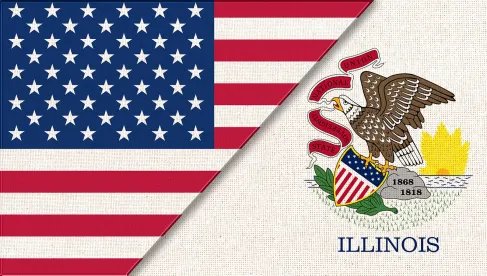On May 18, 2023, the Illinois legislature passed House Bill 0219, which would amend the Illinois Wrongful Death Act to allow heirs of decedents in wrongful death actions to recover punitive damages in most cases. If Illinois Gov. Pritzker signs the bill into law, punitive damages will be recoverable under the Illinois Wrongful Death Act, exempting legal or medical malpractice claims and cases against the state or local government.
The general rule of law in Illinois is that punitive damages are available only to the injured victim and do not survive the victim’s death. As the Illinois Supreme Court noted in the 2009 wrongful death case Marston v. Walgreen Company, where the jury awarded $25 million in punitive damages to the decedent’s estate, “actions for punitive damages will not survive the death of the original plaintiff unless the legislature specifically authorizes such action or there are strong equitable reasons for allowing recovery of punitive damages.” If signed into law, House Bill 0219 would provide the necessary statutory support for awarding punitive damages in such cases.
The Illinois business community and insurance lobby oppose House Bill 0219, arguing that its enactment will deter companies from moving to or expanding business in Illinois due to increased liability and upward pressure on insurance premiums. Republican Rep. Dan Ugaste echoed these concerns — “We could end up shutting down a business because of one or two bad actors” — as well as the potential ripple effects on Illinois workers and consumers. These issues, opponents to House Bill 0219’s enactment contend, are particularly worrisome given that the bill contains no cap on the amount of punitive damages that may be awarded.
In a joint statement, the American Property Casualty Insurance Association and the Illinois Insurance Association declared that House Bill 0219 “would make Illinois an extreme outlier state in terms of allowable damages for wrongful death cases, as almost all states that do allow for punitive damages also ‘cap’ or otherwise limit both punitive and non-economic damages in some way, which Illinois does not.”
Democratic Rep. Jay Hoffman stated that the legislature’s hands were tied with regard to including hard punitive damages caps in the bill, as “[t]he Supreme Court in Illinois has ruled that they’re unconstitutional.” One “soft cap” will nonetheless apply if House Bill 0219 is enacted, as the Illinois Supreme Court has held that punitive damages exceeding 10 times the compensatory damages awarded in a case is a violation of due process. Taking the Marston case as an example, the $63 million punitive damages award would not violate the cap, as the jury awarded the estate slightly over $6.3 million in compensatory damages.
House Bill 0219 supporters have stressed the rarity of punitive damages awards. According to the Illinois Trial Lawyers Association, a supporter of the bill, Illinois juries have awarded punitive damages over $10,000 in only 18 personal injury cases over the last decade. Additionally, in 2005, the U.S. Department of Justice, in its most recent nationwide survey on punitive damages, found that punitive damages were awarded in only 3% of successful cases involving the most common types of personal injury claims.
While its full effects remain to be seen, if House Bill 0219 becomes Illinois law, a decedent’s heirs in a wrongful death case will be able to seek and obtain punitive damages under the same standard as a living victim in a personal injury case — subject to limitations of the due-process-based soft cap on awards and with exemptions for cases against state governments, local governments, and in legal or medical malpractice claims.
House Bill 0219’s language, amending the Illinois Wrongful Death Act, is below and underlined as follows:
Whenever the death of a person shall be caused by wrongful act, neglect or default, and the act, neglect or default is such as would, if death had not ensued, have entitled the party injured to maintain an action and recover damages including punitive damages when applicable, in respect thereof, then and in every such case the person who or company or corporation which would have been liable if death had not ensued, shall be liable to an action for damages, including punitive damages when applicable, notwithstanding the death of the person injured, and although the death shall have been caused under such circumstances as amount in law to felony. Nothing in this Section affects the applicability of Section 2-1115 of the Code of Civil Procedure or Section 2-102 or 2-213 of the Local Governmental and Governmental Employees Tort Immunity Act. Punitive damages are not available in action for healing art malpractice or legal practice or in an action against the State or unit of local government or an employee of a unit of local government in his or her official capacity. The changes made to this Section by this amendatory Act of the 103rd general Assembly apply to actions filed on or after the effective date of this amendatory Act.




 />i
/>i

